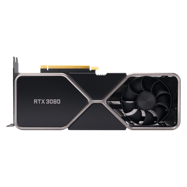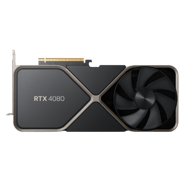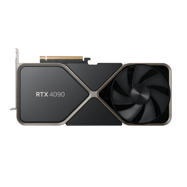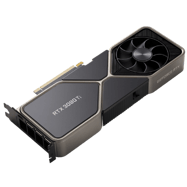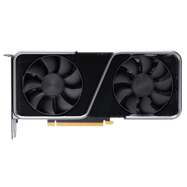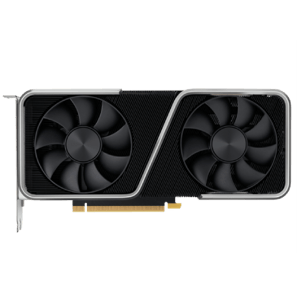The most used graphics cards by CS2 players
The most popular graphics cards are calculated based on 646 professional players.
Introduction
It’s often said that CS:GO ‘runs on a toaster’ but if you want to be a competitive player you won’t want to be playing on a toaster. For a game that’s as (relatively) easy to run such as CS:GO, the minimum competitive framerate standard very much sits at 240Hz, so you if you’re really serious about the game you will want to get yourself a monitor that can display 240 frames per second and then, of course, a system that can push enough frames. Due to the everlasting improvement of PCs and PC components, we’re even seeing a move towards 360 frames per second in recent times.
Our analyst team has been taking a look at what’s out there, and they’ve poured it all down into this list of GPUs to consider.
Disclaimer
The Pro Usage Top 5 gets updated daily so that you can get an up-to-date overview of what the pros are using at any given time, which includes discontinued cards. In the body of the article we will focus on cards that are currently available for purchase.
What makes a GPU good for CS:GO?
CS:GO is an older game, and even though CS2 has been announced and is currently in beta, Valve have already announced that they will make sure that the game will keep running well even on lower tier machines. This means that it won’t be difficult to get a decent amount of frames when playing Counter-Strike 2, and that’s great news for competitive gamers.
There’s an abundance of advantages that you get from gaming at higher framerates, and the fact that not a single professional CS:GO player plays at 60 Hz should also tell you something. In fact, around 86% of all CS:GO pros in our database are playing on a 240 Hz setup (and over 7% have already switched over to a 360Hz monitor) meaning that we consider that to be the competitive standard for this game. Recently, 1440p 360Hz gaming monitors with Ultra-fast IPS displays have been coming out, and given the fact that computers are getting more and more powerful we could see these becoming the norm in competitive gaming over the next couple of months/years.
Counter-Strike: Global Offensive is pretty easy to run and reach a decent amount of frames on (even at 1440p) but in a game without bullet magnetism or any sort of aim assistance you’ll definitely want to maximize your frames to get a clear view of the battlefield. As we’ve already established in our article: the advantages of gaming at higher framerates don’t end when you’ve saturated your monitor’s refresh rate.
With that being said: you need to take your entire build into consideration when shopping for a GPU. If you’ve got a 1080p 144Hz monitor and you’re not planning on upgrading anytime soon you absolutely won’t need a top of the line card to run the game at acceptable framerates, for example. As is the case with every game you’ll need a decently balanced setup. Especially for CS:GO (which is very CPU dependent) you will want to get a good CPU along with a decent amount of RAM and so on, so always make sure to consider your budget and build your rig around that. Don’t handicap yourself by going for a great GPU that gets bottlenecked by subpar surrounding components.
The video below illustrates the benefits of higher framerates for competitive games perfectly, so it’s worth checking out if you’re new to the concept.
NVIDIA GeForce RTX 4080
NVIDIA Reflex Compatible
NVIDIA GeForce RTX 4080
Used by 40 CS2 players ()The GeForce RTX 4080 is part of the 40 series of graphics cards, made by NVIDIA. These succeeded the 30 series of graphics cards.
Specs
| NVIDIA CUDA Cores | 9728 |
|---|---|
| Boost Clock | 2.51GHz |
| Memory Size | 16GB |
| Memory Type | GDDR6X |
We said it earlier in the article: 1440p 360Hz gaming is becoming a viable option with the dawn of Ultra-fast IPS displays which are capable of response times that rival those of TN panels made for gaming. If you are someone who is looking to invest in this new technology (do note that this will come at quite the cost: it’s new tech and as such it’s still expensive) then the RTX 4080 is a fantastic card to consider.
For 1080p we would consider this to be overkill (yes, the advantages of high framerates don’t end when you’ve reached your monitor’s refresh rate but there are diminishing returns here) but for 1440p this one works perfectly. It stays nicely above the 360Hz mark even at max settings (in CS:GO; as mentioned we sadly don’t have access to CS2 yet) so this is one to get if you want to future-proof your build with a card that not only runs CS:GO with absolute ease but will also handle the latest and greatest games without any issues.
This is a great high tier card, and if you’re looking at constructing at high tier gaming setup with a high tier gaming monitor then this should be the one to look for.
NVIDIA GeForce RTX 3070
NVIDIA Reflex Compatible
NVIDIA GeForce RTX 3070
Used by 24 CS2 players ()The GeForce RTX 3070 is part of the 30 series of graphics cards, made by NVIDIA. These succeeded the 20 series of graphics cards.
Specs
| NVIDIA CUDA Cores | 5888 |
|---|---|
| Boost Clock | 1.73GHz |
| Memory Size | 8GB |
| Memory Type | GDDR6 |
The RTX 3070 is a card that offers a great price/performance proposition if you’re asking us, and when it comes to CS:GO it’s the ultimate card for people who want to play at 1080p and get the best out of their GPU at all framerate steps.
When lowering the ingame video settings to competitive values, we’re seeing framerates around 360Hz, meaning that this is a perfect card for competitive players who have a gaming-focused 360Hz monitor. This also goes for 1440p: the framerate average will dip slightly under 360 frames per second when using competitive video settings, but it’s still more than decent enough to enjoy the benefits of a 1440p 360Hz monitor.
If you’re going for an all-out build and you truly want to future-proof your rig then we would recommend going a step up, since there are cards that handle 1440p 360Hz better than this one, but if you are looking for a mid tier card for CS:GO then the 3070 is one of the best ones to get.
NVIDIA GeForce RTX 4090
NVIDIA Reflex Compatible
NVIDIA GeForce RTX 4090
Used by 31 CS2 players ()The GeForce RTX 4090 is part of the 40 series of graphics cards, made by NVIDIA. These succeeded the 30 series of graphics cards.
Specs
| NVIDIA CUDA Cores | 16384 |
|---|---|
| Boost Clock | 2.52GHz |
| Memory Size | 24GB |
| Memory Type | GDDR6X |
There will always be those who want to go all-out, and if you’re someone who doesn’t want to worry about framerates over the next couple of years and/or you’re someone who wants to absolutely optimize their gaming setup to give you the absolute best performance out there, the 4090 is the best card to get right now.
This is not a card for everyone, however, and if you pretty much only play CS:GO we would definitely steer you towards more budget-friendly alternatives as the framerates that this card puts out in this game are quite simply ludicrous. Even at 4K and high settings you’ll be reaching well over 360 frames per second with absolute ease, so even if you’re looking at jumping on the 1440p 360Hz monitor train for gaming we would recommend other cards because of the fact that this card is, quite simply, overkill for most people.
If overkill is what you’re looking for or you also play other games and you want to max out the latest and greatest visual masterpieces (and you want to continue doing so for the foreseeable future) then this is the one to go for. If that’s not you, then save some money and go for something more affordable.
NVIDIA GeForce RTX 3060
NVIDIA Reflex Compatible
NVIDIA GeForce RTX 3060
Used by 8 CS2 players ()The GeForce RTX 3060 is part of the 30 series of graphics cards, made by NVIDIA. These succeeded the 20 series of graphics cards.
Specs
| NVIDIA CUDA Cores | 3584 |
|---|---|
| Boost Clock | 1.78GHz |
| Memory Size | 12GB, 8GB |
| Memory Type | GDDR6X |
Gaming at 240 frames per second is a tall order, even if you’re playing a game that’s famously easy to run. With GPUs becoming more and more powerful with every generation (luckily: otherwise there’d be no real point in releasing new GPUs) budget options are becoming more of an option though, even if you’re trying to reach that coveted 240 frames per second mark.
The RTX 3060 is an example of one such card. Despite the fact that it will dip a couple of frames below 240 every once in a while (but this is rare) it delivers a buttery smooth 240 FPS performance, making this a great pickup if you’re someone who mostly plays CS:GO at 1080p, and due to the fact that this one is part of an older line of GPUs you can snag it at absolutely fantastic prices if you’re paying attention.
This isn’t a card we’d recommend to gamers who want to build a system that they won’t have to upgrade for years to come or for gamers who want to play at 360Hz, but as a budget card it’s hard to imagine something better than the RTX 3060.
Best GPU for CS:GO – Conclusion
As you’ve no doubt been realizing it’s not all that hard to reach the higher echelons of the framerate world in CS:GO (though, again, make sure your CPU and the rest of your system is up to par) so crafting a dedicated setup for Counter-Strike: Global Offensive doesn’t have to be extremely expensive, even if you’re starting from scratch.
If you’re on a budget you can always go for a 144 Hz setup; that’ll drastically lower your equipment costs but it is recommended to go 240 frames if you’re trying to reach the higher levels of the CS:GO competitive scene, especially given the fact that 360Hz setups are becoming more and more common. With the recent release of 1440p 360Hz monitors with an Ultra-fast IPS panel it could also be a good idea to take a potential resolution upgrade into account when purchasing your next GPU.
Professional players are always trying to maximize their framerates (even to the point of using lower resolutions and what not) even when they’re using monster GPUs such as the RTX 3080 though, so there’s definitely something to be said for maximizing the amount of frames that you’re getting and sacrificing visual fidelity.
It’s also important to consider that professional players are operating at a level most of us will not even get close to, however. For them, even the tiniest advantage matters, so it’s definitely possible to be competitive on a smaller budget if you’re not playing in the upper echelons of the competitive scene. We would definitely recommend going for (at the very least) a 144Hz setup, though we’d argue that 240Hz is the new minimum these days for a game such as CS:GO.


